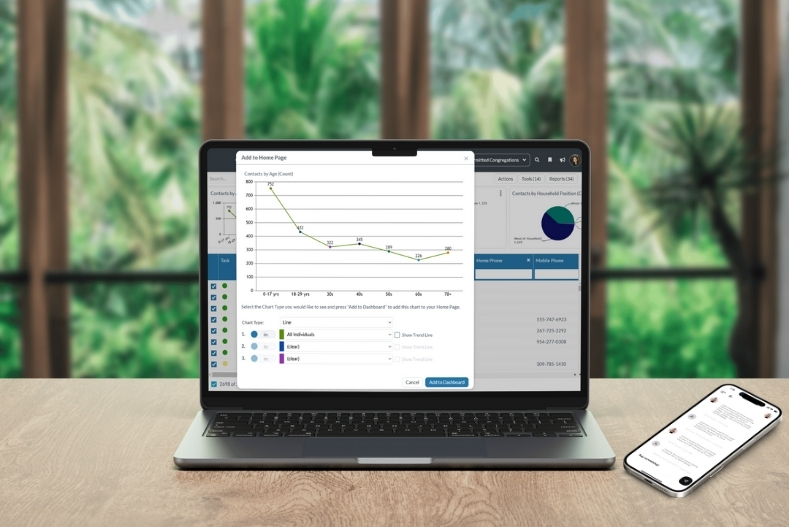Introduction
When I talk about data analytics with churches, I generally encounter one of several responses:
- Their eyes glaze over immediately and I can tell I’m essentially speaking a foreign language,
- They see some value to it – but it’s limited to very specific, defined applications, or
- They know it, they love it, and they’re excited to show me all the ways they’re using it.
Generally speaking, this isn’t too much different from the buckets churches tend to fall into regarding any technology. Many churches are familiar with the basic tenets of analyzing data to provide some insight on the health of their church, but delving “deeper into the data” almost sounds sacrilegious…and daunting. This series will help churches & leaders begin to understand the basics of data analytics, expose some of the myths and stigmas around it, and demonstrate how this technology can be an invaluable tool to understand better and serve their people and communities.
As always, when dealing with a new subject, it’s good to start with some simple definitions.
“I don’t always use Wikipedia, but when I do…it’s because it says what I want it to say.”
In all seriousness, though, its definition of analytics is accurate and useful. It states…
Analytics is the discovery, interpretation, and communication of meaningful patterns in data; and the process of applying those patterns towards effective decision-making. In other words, analytics can be understood as the connective tissue between data and effective decision-making within an organization.
So in the context of the church (i.e., the body of Christ) – we recognize that those decisions we’re talking about are meant to impact and expand the Kingdom of God. Thus by extension – impacting people and communities. This brings to mind one of my favorite analytics quotes (and who doesn’t have one of those always on the tip of their tongue) from Hans Rosling – “Numbers are boring. People are interesting.”
That’s where, as people serving the Kingdom of God, our focus narrows down. As we’ve developed the mission & vision for analytics at ACS Technologies, one of the ways this has been described (and I simply include it here for context) is:
“The purpose of data analytics [within the Church] is to help churches and organizations explore and understand their data – asking questions along the way, to discover issues & opportunities that by answering will enable the church to better execute their mission & vision.”
Essentially – we’re talking about the “connection” between our mission & vision (who we purpose to be; who/what/how God has called us to serve and accomplish)…and our data (who we are; what we are doing and accomplishing).
This can be succinctly described as “missional alignment.” Are we accomplishing what we intended to accomplish? Are our resource allocation and programs aligning with our mission and vision? How do we even measure that or whether we’re being successful at it?
In practical terms – these questions might end up sounding like:
- Why can’t we get younger generations more engaged?
- Are we too dependent on older generations?
- Are we investing in our surrounding community the way we want? Is that bearing fruit?
At ACST, we think it’s really important that churches begin to understand these things, learn to ask the right questions, and start finding answers. And for those already doing it – we want to help you do it better and make it easier.
And to make it a little more fun – we’ll approach this discussion by tackling the most common myths and misperceptions about data analytics. This will allow us to see data analytics from many different angles – and hopefully show its many uses and true value to the Church.
For more resources on Data Analytics, please visit Church Growth.
Brett Herzog is a husband, father, pastor, and tech nerd. He has served in new product development since 2003 for industry-leading companies such as Thomson Reuters, Merrill Corporation, and Follett Corporation. He’s also co-vocational – pastoring a group of home churches in the Greenville, South Carolina area. As the Director of Ministry Intelligence at ACS Technologies, Brett is responsible for leveraging ACST’s research, data, and analytical IP to deliver true “Ministry Intelligence” to its ministry partners and the Church.
Read More:




